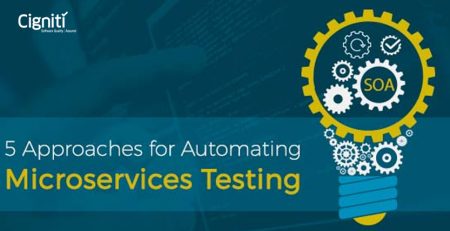DevOps trends to look out for in 2022
When it comes to technology in every unit, there has been a lot of digitalization and automation, which has flourished even more than in past years. DevOps has become more important than ever as businesses embark on the path to digital transformation. It has emerged as the most pressing need for current IT organizations to bridge the gap between development and operations.
DevOps has facilitated rapid and dependable software delivery, improved customer happiness, shortened time-to-market, and much more, in addition to creating a collaborative culture. DevOps approaches have become crucial for most businesses as a result of these services, and their popularity is growing.
DevOps has evolved to meet the changing needs of the corporate environment, as well as the rapid evolution of cutting-edge technology.
Let’s look at some of the rising DevOps trends for 2022 that are predicted to impact the corporate landscape in the near future.
The increase in DevSecOps adoption
Security is another growing concern in the DevOps community, and it’s easy to see why. New security concerns appear to be lurking around every corner as cloud computing becomes more widely used. As a result, DevSecOps is growing more prominent in many businesses’ org charts.
Switch to serverless computing
Serverless computing is a relatively new idea that has been around for over a decade. Enterprises have been slow to embrace the serverless framework, owing to two factors: fear of industry support and fear of return on investment. However, there are other benefits to being serverless that are becoming increasingly hard to overlook.
Efficiency and dependability are the two primary advantages of serverless computing. Enterprises may focus their resources on higher-priority tasks without having to worry about infrastructure administration. Furthermore, serverless architecture eliminates the danger of traditional frameworks’ potential maintenance concerns.
Automated Approaches
DevOps analyses the “Automate Everything” method. In this case, it’s more accurate to say that DevOps automation boosts software delivery speed while also reducing lead time. The other advantage is that you will be able to get to market faster and improve your process. Driving flexibility, agility, and other features are some of the most typical advantages. Everything involved in DevOps is accelerated via automation.
It can, however, provide a significant increase in terms of building, deploying, and monitoring. However, in DevOps, automation has proven to be an absolute prerequisite for minimizing errors caused by human error or ignorance. Automation has played a critical part in delivering the intended results to the client.
Infrastructure Automation (IA)
DevOps teams are excited about using IA tools to automate their processes. It favors automation in IT infrastructure delivery, setup, and management and guarantees that DevOps staff are empowered.
It can, however, aid in the administration of multi-cloud and hybrid cloud infrastructure orchestration. There’s also the engagement of on-premise design delivery services and cloud environments, which includes effective resource provisioning. The use of IA tools by the DevOps and I&O teams ensures that the self-service is properly planned and executed.
Resilience testing is becoming more popular
The DevOps community has been concentrating on resilience testing for a long time. There is a convergence of performance testing, observability, and resilience testing that is becoming increasingly commonplace.
So, when it comes to contemporary DevOps technologies, it’s safe to say that there’s a massive digital change happening across the board. The market will eventually recognize that both public and private clouds provide endless scalability.
Adoption of low-code applications
By the end of 2022, the majority of development environments are predicted to use low-code software. Low-code technologies are divisive in the DevOps world, but they’ve proved to help developers be more productive. Whether it’s DevSecOps, Kubernetes, microservices, or serverless computing, low-code solutions will allow developers to focus on the big picture.
Assimilation of Artificial Intelligence (AI)
In the technical world, AI/ML have left no stone unturned, and DevOps isn’t far behind. This technical practice has incorporated several AI and ML techniques to achieve the finest results. AI can improve the way teams develop, deliver, deploy, and organize apps without putting in a lot of effort. They provide a meaningful RoI for a business, making IT processes more responsive. They have the potential to boost team productivity and play a key role in bridging the gap between humans and big data. In DevOps, AI has now proven to be a vital asset in assisting with decision-making. New terms like AIOps and DataOps are gaining traction, and their importance will only increase in the next year.
Infrastructure as Code (IaC)
Infrastructure as code (IaC) is more than just automation in DevOps, and it’s becoming increasingly important. It’s more akin to using configuration files to manage the entire IT infrastructure in the Cloud. Most significantly, it provides continuity by automatically provisioning and configuring all environments with no human error. IaC will continue to be the standard and major DevOps feature in 2021 and in the near future as more teams realize the benefits.
Adoption of GitOps is growing
The development process always necessitates the use of tools that the developers are familiar with. So, in this technological arena, GitOps with DevOps is the most effective technique to achieve continuous delivery. More specifically, the operating paradigm for developing cloud-native applications is based on the use of new technologies. GitOps also allows for one-stop deployment, monitoring, and management. As a result, it can be used as a source of declarative infrastructure as well as applications.
The Hybrid as a New Deployment Standard
Industries will embrace the use of hybrid in a variety of ways. Businesses will openly support hybrid workforces to combine the benefits of remote work and onsite team collaboration, according to the new DevOps guidelines. Furthermore, business models are becoming hybrid, as evidenced by how they are impacting conferences. Hybrid networks can combine virtual and local networking capabilities. As enterprises upgrade their stack to take advantage of cloud-native technology, hybrid deployment is becoming the norm.
DevOps Performance Evaluation
As IT becomes more vital to our businesses, it’s more important than ever to increase our ability to deliver innovations quickly and safely. DevOps is a movement aimed at reimagining how software is delivered, with a focus on delivering value to end users through automation and collaboration. It’s easy to lose sight of the most critical element when dealing with complex modifications to complex processes. The basic foundation on which you may analyze the impact of changes is by measuring the performance of DevOps, and this is going to catch up moving forward.
Conclusion
Automation and continual improvement are at the heart of DevOps. The key to the DevOps transformation is that it is a constant evolution rather than a final state. It’s a path toward a more regular and dependable release pipeline, as well as automation and better communication between development, IT, and business teams.
Cigniti’s DevOps Maturity Model is a structured framework for assessing team and organizational DevOps capabilities for building next-generation software. It can complement the movement of apps to the cloud so that enterprises can derive the same benefits from the cloud. Defining a robust strategy and preparing applications for cloud DevOps even before cloud migration will ensure success. Our DevOps Advisory and Consulting services enable the culture of aligning and synergizing the processes of development and operation with enhanced security in the software development lifecycle.
Cigniti offers comprehensive DevOps services and expertise to put your DevOps transformation to work, automating at every stage of development and deployment with quality and security built into product development and delivery cycles.
We provide continual assurance of incremental changes throughout the development process. Using the Unit automation framework, TDD/BDD automation frameworks, BlueSwamTM Verita, CD Pipeline Template Library, and Testing Frameworks for CD Pipelines, Cigniti can help incorporate Continuous Integration, Delivery, and Deployment into your delivery processes to get faster feedback and release cycles.
Need help? Contact our DevOps experts to learn more about the DevOps trends to watch out for in 2022 and how to accelerate product development with DevOps Transformation Services.





Leave a Reply